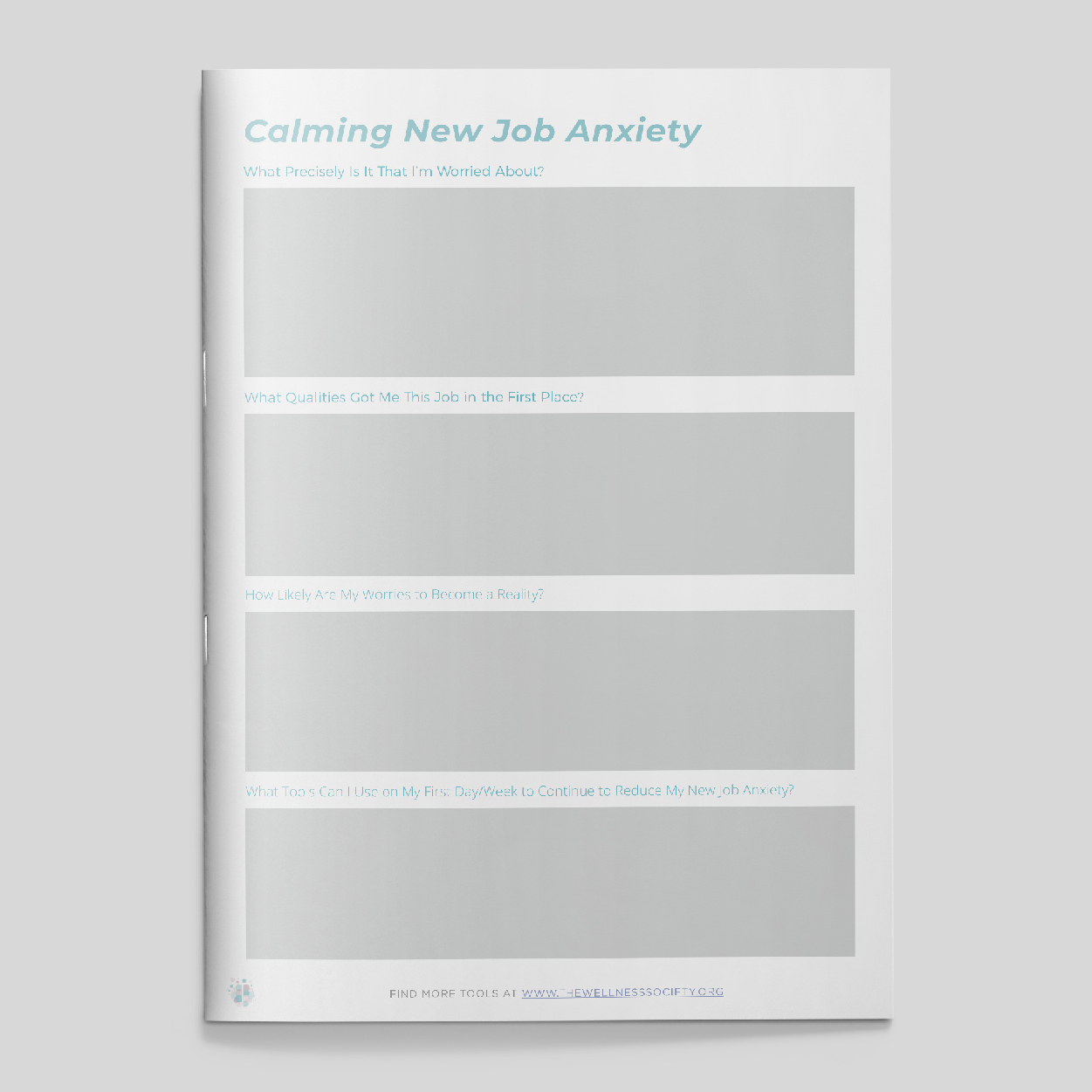Congratulations! You’ve got a new job. You should be delighted – perhaps it’s a promotion, or a career change, or returning to work after a period of absence. In most circumstances a new job is to be celebrated and it’s smiles all round.
But sometimes, behind the smile and the excitement is a bubbling sense of anxiety – the kind that reminds you of going back to school after the summer holidays. And that’s perfectly normal. A change of job is change, and that’s how our brains react to change and uncertainty. We’re wired to fight harder for the status quo because that’s generally what keeps us safe.
Why Is Starting a New Job So Stressful?
Change and uncertainty are normal human stressors. Even if your new job is in the same company and with the same colleagues, normally a new position will mean we need to change our perception of:
Ego: Usually, you’re not going to know as much about your new job as your old job. And that means you’re probably going to need to ask for help. That might be as simple as where to find the stationary cabinet, or as disorienting as learning a whole new set of skills. This might be where a sense of imposter syndrome begins.
Status: Any new job is likely to affect your sense of status. We don’t mean position in the hierarchy, but more position in a group. As the new person, you’ll feel more on the outside than on the inside and that might be a huge shift from your previous job.
Energy: Our brains generally like to conserve energy. But learning a new job, a new set of people’s names, new processes, etc., they all require calories, and it’s enough to make us feel exhausted at the end of the day.
How to Calm New Job Anxiety
The night before you begin a new job, you’re likely to have a lot of thoughts swirling around in your head. And in the dead of night, your anxieties can seem much bigger than in reality.
One technique for reducing new job anxiety (and getting a good night’s sleep!) is to try and organise those thoughts using these four questions.
Question 1: What Precisely Is It That I’m Worried About?
List out everything that you’re concerned about. What’s the worst-case scenario of your worries? Capture everything – even thoughts that might seem a bit ridiculous.
You might be worried about:
- Not knowing where things are – your desk, the equipment, the toilets, where to eat
- Not knowing how to do your job competently on day one
- Not knowing everyone’s names and jobs
- The potential of treading on someone else’s toes
- Perhaps having got the job over someone else on the team
Keep writing all of your worries down – they’re all there, going around in your head, but by capturing them you remove some of the power those thoughts have to disrupt your sleep.
Question 2: What Qualities Got Me This Job in the First Place?
Congratulations! You’ve got a new job. This is worth repeating. Make a list of the top five qualities that secured you this new job – was it your work ethic, growth mindset, determination, adaptability, compassion, skills and capabilities, customer service, etc.?
Just take a moment to reflect on those strengths and motivations.
Question 3: How Likely Is the Worry to Become a Reality?
Going back to your first list - take each item in turn and rank it on a scale of 1-10 as to how likely is it to become a reality - 10 being ‘certain to happen’, 0 being ‘very unlikely to happen’.
When you’re thinking about this, consider all your past experiences, those strengths you captured in the last question, and everything you’ve faced in the past. In your last job, you also had a first day. Did you have the same worries and did they become a reality? By looking at everything ‘rationally’ and considering your natural resilience and adaptability, the list of worries should become shorter and more manageable.
Question 4: What Tools Can I Use on My First Day/Week to Continue to Reduce My New Job Anxiety?
To further reduce new job anxiety, you need time or tools.
Look at anything you scored above a 6 – do you think that score will reduce over time? I.e., is it a ‘day 1’ worry, but you know from experience that by the end of ‘month 1’ it will have reduced? (For example, after day 1 you’re going to know where the toilets are.) If so, time is what you need, and you can be 100% certain that time will pass!
For everything else above a 6 – what tools are you going to use to help reduce your anxiety? For example, are you genuinely worried you won’t remember people’s names? Write them down as soon as people introduce themselves.
Concerned that someone is going to question your capability to do the job? Repeat in your head the strengths you’ve demonstrated to get here. Take each item on the list and think of tools or actions you can use to help yourself feel better.
Download the free worksheet here.
Summary
To conclude, feeling anxious about a new job is a perfectly normal part of being human. It can happen to anyone, at any level.
You can help yourself reduce anxious feelings by taking some time to explore specifically what you’re worried about, the core strengths that secured you the job, the likelihood of a worry becoming a reality, and outlining some ways to help you overcome a worry.
Remember, as Seneca wisely said, “We suffer more in imagination than in reality.”
Congratulations again – you’re going to be great!
Self-Guided Support for Anxiety and Low Mood
Research shows that self-help materials are often enough for people to overcome mild to moderate mental health difficulties without professional support.
If you’re interested in a self-guided program that includes tools from CBT, DBT, ACT and more, be sure to check out The Mental Wellbeing Toolkit. It's "like 10 therapy sessions in one."

About Kerry
I’m the Director of Freehuman, an independent culture and engagement consultant and an Executive, Team, and Climate Coach. I have 20+ years experience in Human Resources, and I’m the former Head of Culture for NatWest Group. Over the last 3 years since starting Freehuman I’ve helped organisations across many different sectors to build better working environments that help people, teams, and the planet to thrive.
Website: www.freehuman.co.uk
Email: kerry.freeman@freehuman.co.uk


